Yep, it’s a controversial subject among SEOs.
But, you probably already know this: I recommend link building.
The words “link building” have a bad reputation. Why? Because, in the past, it was improperly executed by overeager marketers.
Today, some people try to sugar coat it or call it something like “reputation building.”
I call it like it is. It’s link building. And, there’s nothing wrong with building links in the right way!
Obviously, I’m 100% against spammy, black-hat link building, a la 2011.
So, when it comes to solid, reputable, ethical, high-quality link building to your awesome content, I’m a fan!
My philosophy in business and marketing is to choose long term gains over short term wins. Too often, the short term wins end up costing you in the long term.
And, that’s the tricky thing about link building. It can take a while! It’s a long-term play.
These are important questions. Why? Because link building is still at the heart of SEO.
And, if we’re left with more questions than answers surrounding the topic of link building, then we’ll probably waste time and money somewhere.
I wanted to tackle this question head-on. After years of link building, I decided it was worth it to spend the time and resources to answer the question: How long do you have to do link building before you get to the top of the SERPs?
Learn exact strategy I used to ranked number one for online marketing and grow my traffic to 195,013 visitors a month.
The Answer: It Depends
That’s a frustrating answer, I know. I tell you that because I want to clear the air right at the outset of this article.
If you read the whole article (I recommend it!) you’re going to see a lot of numbers, a lot of data and a lot of analysis.
But, here’s the thing: The real answer to how long does it take to rank on page 1 depends on thousands of factors.
In other words, no matter how sophisticated our analysis, we can’t provide a one-size-fits-all answer to the question.
What’s more helpful than a simple answer, however, is a deeper understanding of how SEO works.
While I may not be able to tell you “You’ll rank in 87 days!” I can give you some new insights on some of the unexpected ranking factors that you might have overlooked.
Plus, I can give you actionable data that will make your link building efforts more productive than ever before.
The broader question we need to answer is this: How do links influence the ranking of new content?
Take a look at what we discovered. The results might surprise you.
The Data: What We Analyzed and How We Did It
To give you the best data possible, we worked with three major data partners:
- BuzzSumo.com – I use BuzzSumo to come up with article ideas and find influencers. For this study, BuzzSumo helped us source “fresh” content and determine publication dates.
- SEMRush.com – We pulled data on hundreds of thousands of keywords for this study and other data-driven studies in the past.
- Ahrefs.com – As you’ll see below, the metric domain rating is a huge component of this study. Ahrefs provided us with more than 150,000 lines of data that were critical to this study.
We first took 20,000 URLs from pages that were published during 2016. For each of those URLs, we looked at 12 separate data points within each month of the year.
Here are some of the important data points we analyzed for each URL:
- The date that the page got its first link.
- The domain rank of the page every month thereafter.
- The momentum of link growth based on Ahref’s measure of each incoming link’s domain authority. This was important to assess how much the total score of all the incoming links improved over a period of time.
- The date that the page got its first ranking for the keywords it ranks on now.
- The momentum of Google rank growth. In other words, how much does the page’s rank improve over time? For example, it might first be seen at position #86; next month it moves to #22; in month 3 it hits the first page of Google at #7.
Here’s how the data from a single URL looks when tabulated:
For every URL and every keyword, we performed a thorough analysis of each one of these factors.
In addition, we isolated key metrics from SEMRush’s organic data and measured these factors as well.
Domain Rating, provided by Ahrefs, was super important for our study.
According to Ahrefs, domain rating “shows how strong the overall backlink profile of a given website is on a logarithmic scale from 1 to 100 (with latter being the strongest).”
How do they come up with this rating?
If Domain A has at least one page with a dofollow link to a page on Domain B – we remember the fact that Domain B has a link from Domain A.
There’s a gem nestled inside DR that can give you some remarkable insight into link building. It’s this, as explained by Ahrefs:
Low-rated domain with small number of linked domains can influence your DR more than super-popular domain (which links to million domains).
This little nugget of information helps make link building simpler. You don’t need a link from the New York Times or Google.com to boost your rankings.
Instead, you can build a link from a niche website that links out to only a few other websites.
Doing so will increase your DR and presumably your Google rank, more than a link from a massively popular website.
Keep in mind, we needed to define whether or not a URL reaches the top 2 pages in Google. That measurement is not as simple as it might sound.
For example, what type of “momentum” or movement do we include in this assessment?
I’ll show you one example. We looked at many keywords, but here is the analysis of a single keyword (“red truck”) along with the features we analyzed.
In order for a page with a ranking keyword to qualify, it had to hit the top two pages of the Google SERP. If it didn’t, we tossed it.
We calculated the percentage change in position each month. Then, we averaged these numbers out, according to the number of months that they changed.
Why? Because we wanted to see how fast the different URLs were able to rank. When we analyzed the aggregate, we would have a good picture of rank increase momentum.
The reality is, there are hundreds of variables that influence a page’s ranking factors. Some are link-specific, but hundreds of others are not.
Link signals, which was our measurement focus, coexist within a variety of other competing signals, especially when analyzing its movement to page 2 of Google.
Our goal was to normalize the data to limit the amount of noise.
Our Results
Let’s take a look at the major results from all of these millions of data points we crunched:
- Average Highest Rank Position: 1.81
- Average time (in months) it took to reach this position: 3.39 (about 100 days)
- Average domain rating of the ranking page: 49.6
- Average total referring domains: 25
I want to unpack each of these points, so you don’t miss the big message.
In communicating this big message, I can’t stress enough the fact that these are averages. Your results will vary.
One of the dangers of data analysis is that sometimes people tend to see the numbers as prescriptive for their website, rather than descriptive data based on a huge number of factors.
Please keep these disclaimers in mind.
Average Highest Rank Position: 1.81
The average page we measured ended up at the average position of 1.81.
Keeping in mind the disclaimers we discussed above, this suggests that you can rank on Google page 1 for a given keyword and you can do so in less than four months.
Average time (in months) it took to reach this position: 3.39 (about 100 days)
If you came to this article hoping to figure out exactly how many days it’s going to take you to reach Page 1 on Google, you realize by now that there’s no simple answer.
What I can tell you is that the average time that it took for a page to reach their top position was 3.39 months.
To answer the question, “how long do we need to keep link building,” I would say, “As long as it takes.”
And, if you were to ask me, “How long does it take?” I would say, “About three months.”
Average domain rating of the ranking page: 49.6
I’ve spent quite a bit of time discussing “domain rating” in this study so far. As it turns out, the average ranking page in our analysis had a DR of 49.6.
What should you do with this data?
For starters, it might be helpful for you to know your own website’s domain rating.
The source of the DR data is Ahrefs. To get the data, sign up for an account at Ahrefs or use the limited free version. (You can get 2 weeks free.)
First, go to the dashboard.
Then, type your website URL into the search bar in the upper left corner.
Click the orange magnifying glass. You will see an overview display of your website’s metrics.
Your domain rating is the “DR” graph near the top:
If your own DR is close to the average range, it gives you a very rough sense of how long it might take you to rank, relative to the averages.
If your DR is low, don’t be dismayed. Even though the average DR was close to 50, our results were surprisingly similar across domains of different authority and domain rating.
Notice the varying ranking times of these pages, according to their DR. Even sites with low DR and few links were able to rank in approximately the same amount of time as a higher-DR site.
Based on this information, what should you keep in mind?Actionable Takeaways
1. Large websites rank faster than small websites.
First, keep in mind the competitive nature of the SERPs.
This almost goes without saying. A site like CNN.com will rank faster than a tiny website that no one has heard of.
(In our data analysis, we were able to flatten the potential skew of such larger sites, to provide you with data that may be more applicable to a medium or small website.)
Notice the correlation of link acquisition with site DR. Sites with a DR higher than 55 gained nearly twice as many links as sites with a DR in the next lowest category (50-55).
2. Fresh content has the potential to rank quickly.
If you hang out with SEOs, you’ve probably heard them talk about how long it takes a page to hit the top of the SERPs for a given keyword.
The fact is, Google has gotten way better at quickly ranking fresh content. The algorithm is smart. Google prioritizes the ranking of new content or content that has “fresh factors.”
3. Don’t give up link building after only a few months.
There is a tendency among marketers to give up on link building after only a few months.
How long do most SEOs keep at it? About three months in my experience.
I understand! Link building is hard work. If you outsource it, it’s expensive. And, you might not see results very quickly. All of those factors mean that you’re likely to quit.
Let me see if I can talk you out of it.
All of the link building that you’re doing in the slow months of no progress is building a foundation for eventual ranking.
Sure, there’s a lot of volatility in the SERPs during that time. That’s to be expected.
Your goal is to train Google, by continuing a pattern of high-quality links to your specific page. Google will eventually settle into a holding pattern.
The entire time that you’re building links, you’re gaining momentum. That momentum will help carry you to the first page of Google.
4. Don’t rely on indirect methods for link building.
Indirect methods of link building are those channels that rely on influence, brand signals, influencers or social media to bring your content to the attention of the masses.
What most marketers do after publishing content is to share it to Twitter, Facebook, etc., Those are fine things. You should keep doing them!
But, sharing your article on social media isn’t a reliable method of link building.
What is a more reliable method? Asking directly for a link from some influential website or individual. It works.
Unless you’re a superstar or have a huge platform and/or PR agency, indirect methods, such as social sharing, don’t build links fast.
5. Build links as quickly as possible 1.8 months after publishing your content.
We found that there is a 1.8 month window during which you could top the SERPs with your content.
This is your content’s period of maximum freshness. Google sees it, likes it and wants to rank it. It just needs a little more assurance that it’s worth pushing to page 1 or 2.
That “assurance” comes in the form of link building.
Waiting until after this period to build links will be more challenging. Your time to rank will be longer and your overall rank may be lower.
6. Decide which keywords you should win before building out content based on those keywords.
Some content marketers set out to win ranking for a given keyword, without doing their due diligence on that keyword.
This can be a mistake.
Why? According to our data, websites that sought rank for a given keyword had difficulty ousting a competitor site that had a similar link profile.
Let’s say we have two websites, yours and Mr. Competitor.
Mr. Competitor already ranks in the number one position for “top 10 types of grass to feed your zebra.”
Should you try to rank for this keyword as well?
Yes. Your sites are equal and you have a fighting chance.
But, should you compete for the term “zebra?”
Probably not.
Why not? Because the websites that rank first in the SERPs for this term have a DR that exceeds yours by a considerable margin.
How should you know whether or not to pursue ranking for a certain keyword?
There’s a simple method. It’s the “If they can rank, I can rank” method.
Look at your competitors and ask yourself the following questions:
- Are they in the same niche? If yes, proceed to question 2.
- Do they rank for your chosen keyword? If yes, proceed to question 3.
- Is their domain rating within 5 points of mine? If yes, then you are on a firm competitive footing.
Conclusion
This study and others prove conclusively that a website with quality links will rank higher and faster than a comparative website with no links.
Should you keep building links? Absolutely.
Will you eventually achieve success? I think so.
One of your primary goals as an SEO or content marketer is to improve the ranking of your website.
The method to achieving this is through the cautious, careful and methodical process of building high-quality links.
Now, you have the data to make informed decisions as to how you do it.
What is your experience in gaining rank through link building?


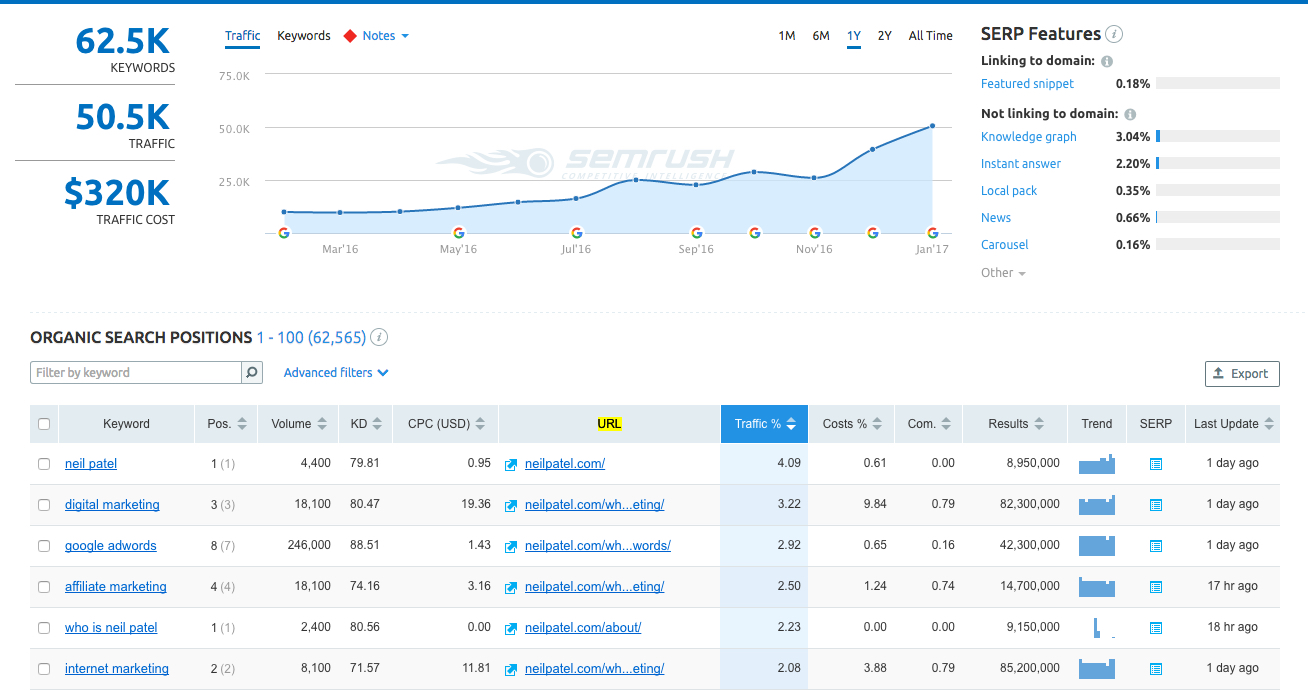
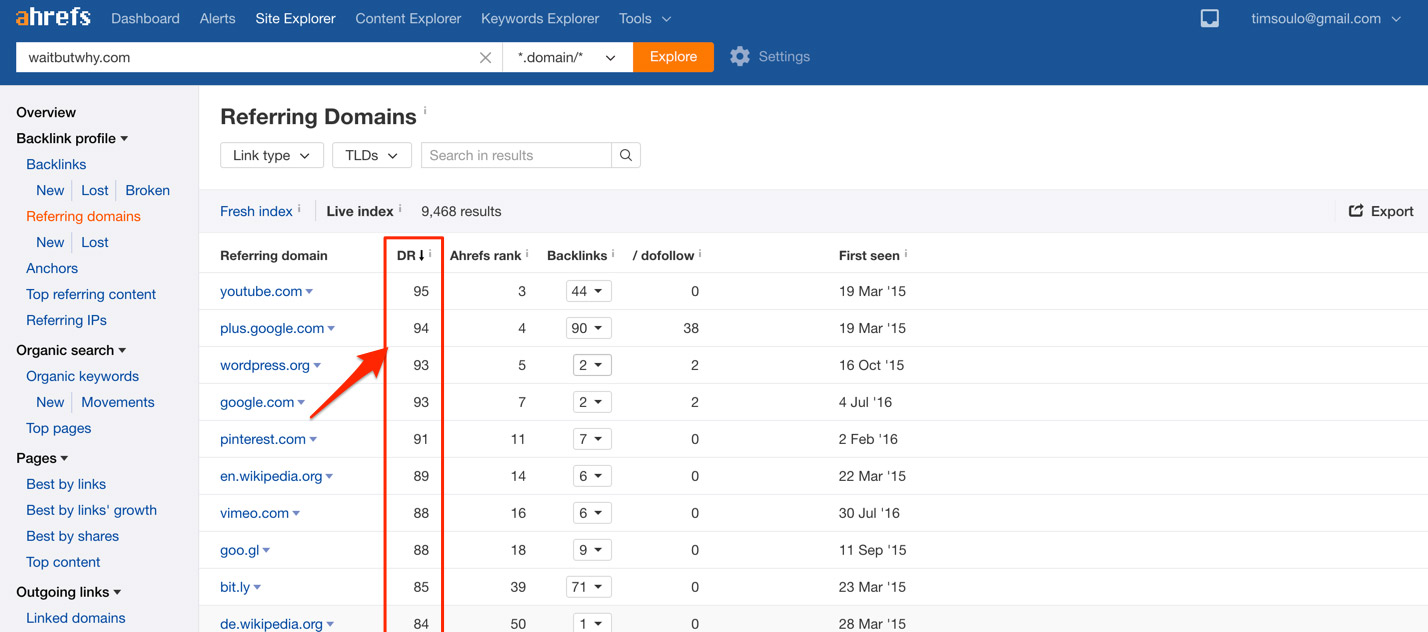

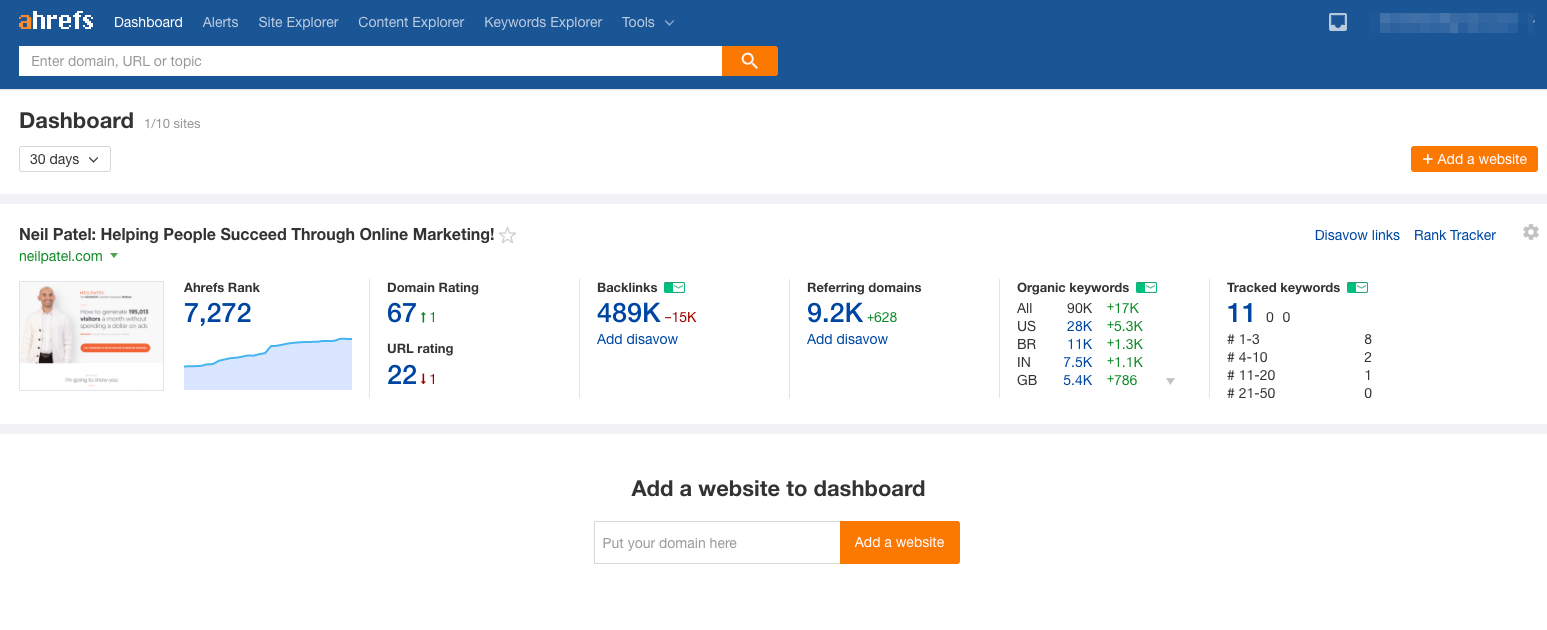

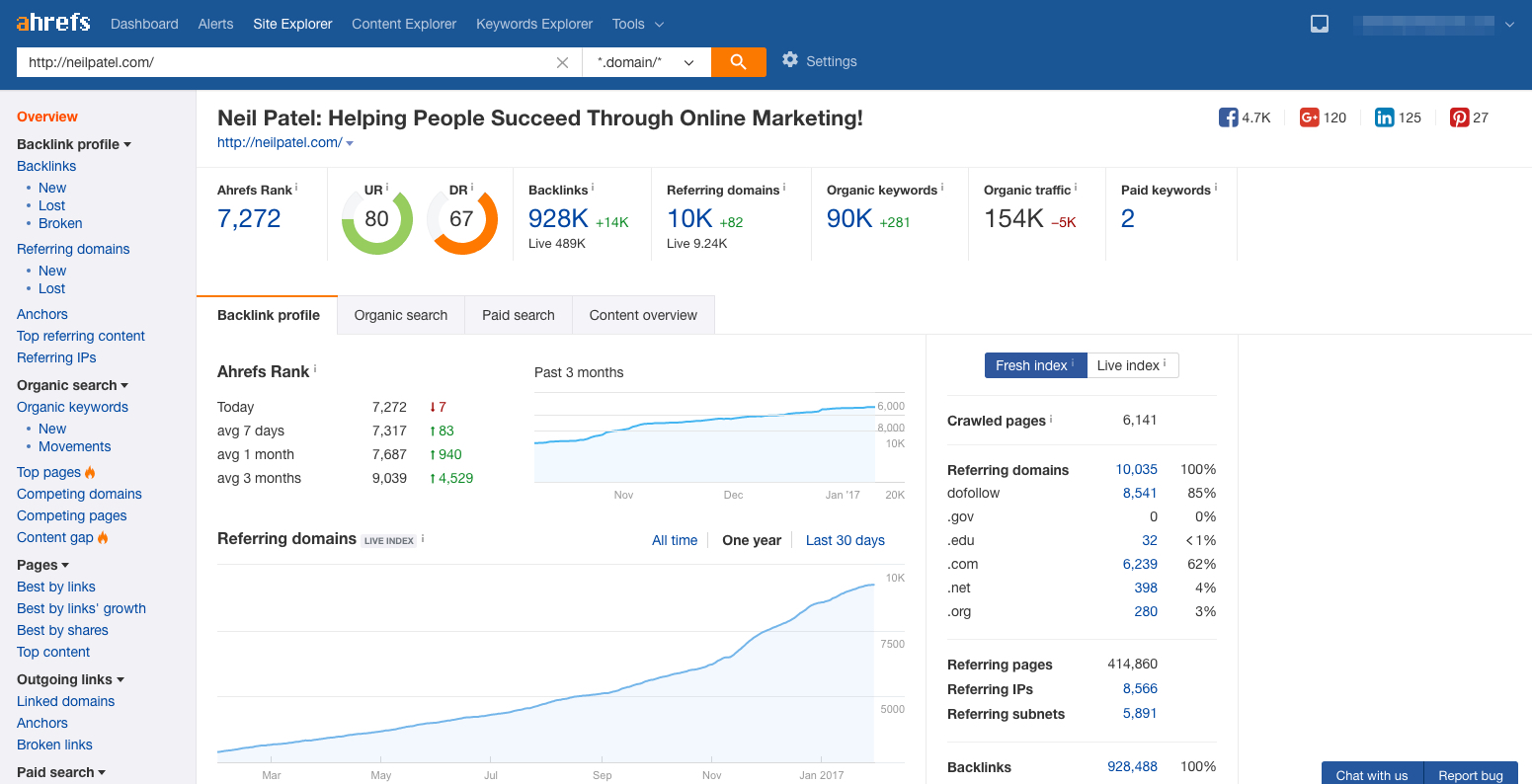
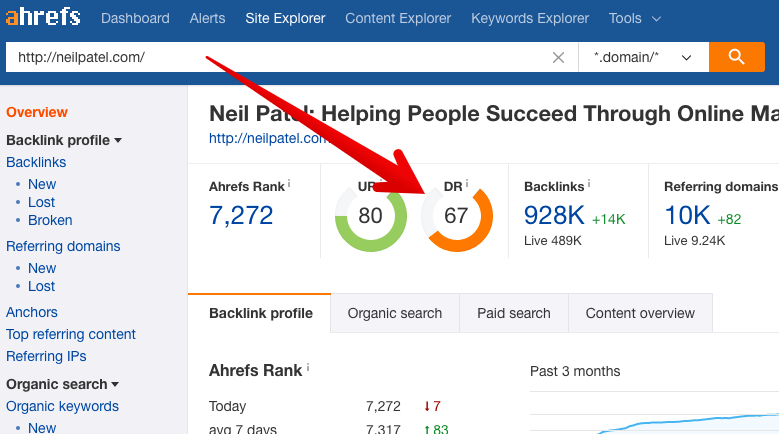




Comments (153)